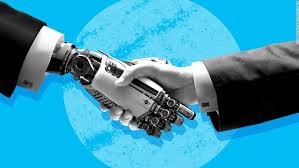
Breaking News
 Battleborn Batteries Responds! Their Overheating Device is a "Feature" not a "Problem
Battleborn Batteries Responds! Their Overheating Device is a "Feature" not a "Problem
 Actor Liam Neeson Outs Himself as MAHA After Narrating Pro-RFK Jr. Documentary Slamming...
Actor Liam Neeson Outs Himself as MAHA After Narrating Pro-RFK Jr. Documentary Slamming...
 Kyle Rittenhouse announced on social media Wednesday that he has tied the knot.
Kyle Rittenhouse announced on social media Wednesday that he has tied the knot.
 JUST IN: President Trump Grants Tina Peters Pardon
JUST IN: President Trump Grants Tina Peters Pardon
Top Tech News
 Build a Greenhouse HEATER that Lasts 10-15 DAYS!
Build a Greenhouse HEATER that Lasts 10-15 DAYS!
 Look at the genius idea he came up with using this tank that nobody wanted
Look at the genius idea he came up with using this tank that nobody wanted
 Latest Comet 3I Atlas Anomolies Like the Impossible 600,000 Mile Long Sunward Tail
Latest Comet 3I Atlas Anomolies Like the Impossible 600,000 Mile Long Sunward Tail
 Tesla Just Opened Its Biggest Supercharger Station Ever--And It's Powered By Solar And Batteries
Tesla Just Opened Its Biggest Supercharger Station Ever--And It's Powered By Solar And Batteries
 Your body already knows how to regrow limbs. We just haven't figured out how to turn it on yet.
Your body already knows how to regrow limbs. We just haven't figured out how to turn it on yet.
 We've wiretapped the gut-brain hotline to decode signals driving disease
We've wiretapped the gut-brain hotline to decode signals driving disease
 3D-printable concrete alternative hardens in three days, not four weeks
3D-printable concrete alternative hardens in three days, not four weeks
 Could satellite-beaming planes and airships make SpaceX's Starlink obsolete?
Could satellite-beaming planes and airships make SpaceX's Starlink obsolete?
Facebook Research is developing touchy-feely curious robots

As a social media platform with global reach, Facebook leans extensively on its artificial intelligence and machine-learning systems to keep the site online and harmful content off it (at least, some of the time). Following its announcement at the start of the month regarding self-supervised learning, computer vision, and natural language processing, Facebook on Monday shared details about three additional areas of research that could eventually lead to more capable and curious AI.
"Much of our work in robotics is focused on self-supervised learning, in which systems learn directly from raw data so they can adapt to new tasks and new circumstances," a team of researchers from FAIR (Facebook AI Research) wrote in a blog post. "In robotics, we're advancing techniques such as model-based reinforcement learning (RL) to enable robots to teach themselves through trial and error using direct input from sensors."
Specifically, the team has been trying to get a six-legged robot to teach itself to walk without any outside assistance. "Generally speaking, locomotion is a very difficult task in robotics and this is what it makes it very exciting from our perspective," Roberto Calandra, a FAIR researcher, told Engadget. "We have been able to design algorithms for AI and actually test them on a really challenging problem that we otherwise don't know how to solve."

 First totally synthetic human brain model has been realized
First totally synthetic human brain model has been realized Mach-23 potato gun to shoot satellites into space
Mach-23 potato gun to shoot satellites into space

